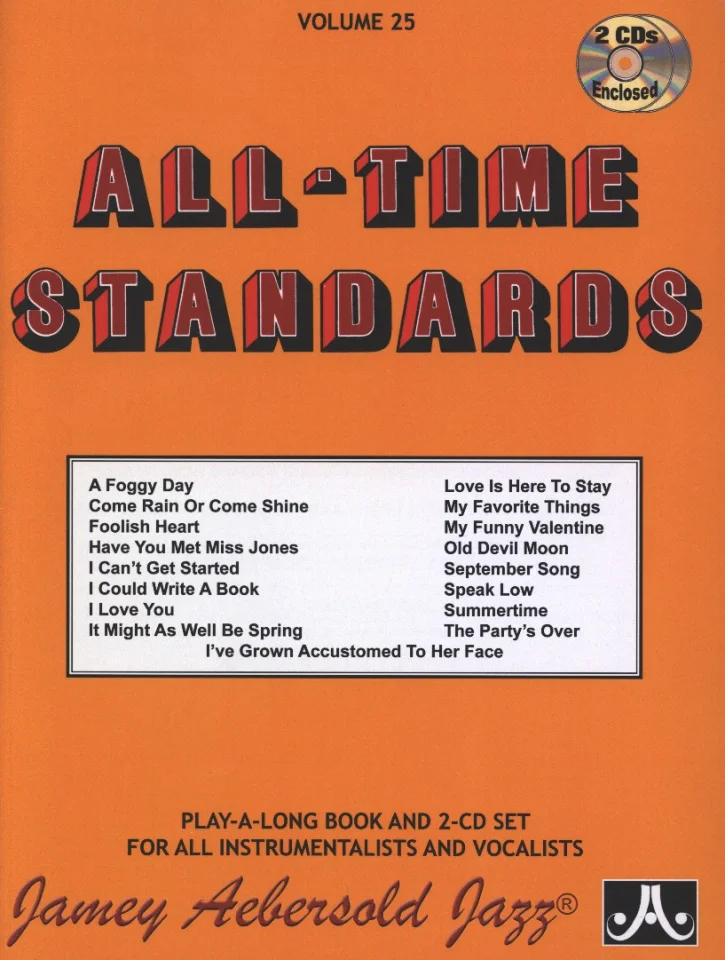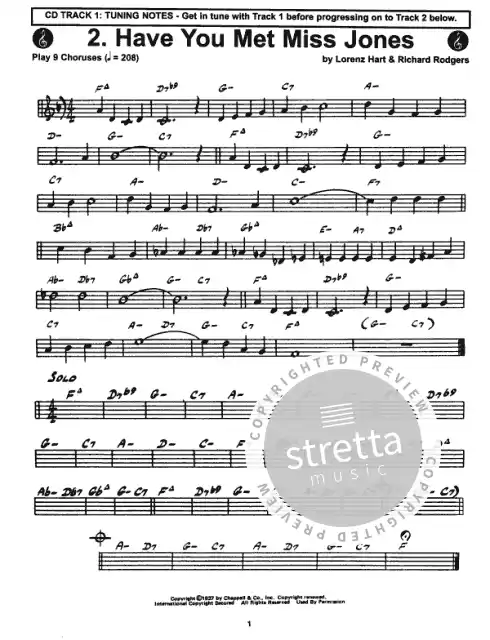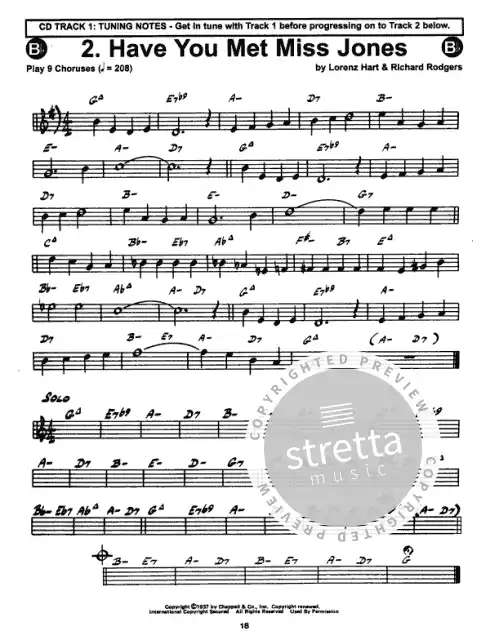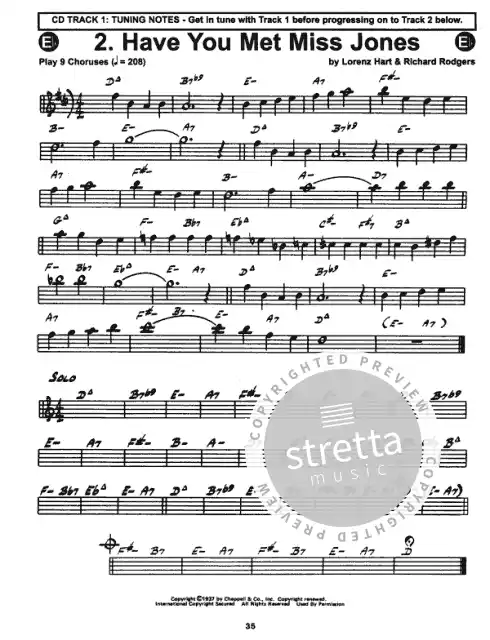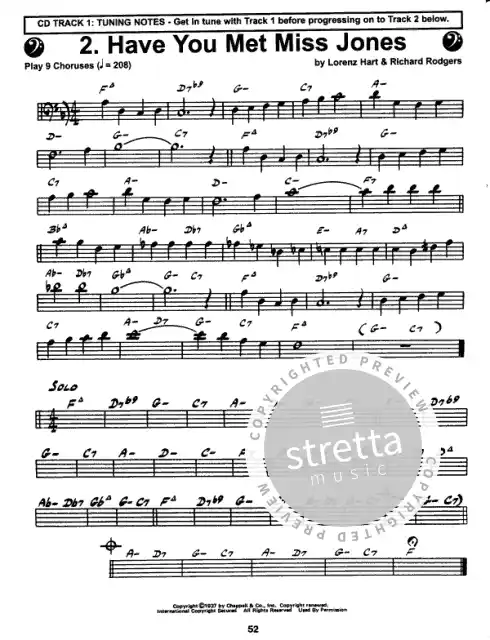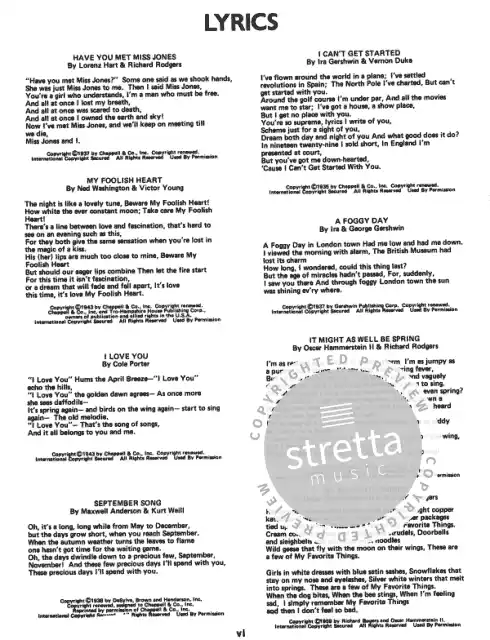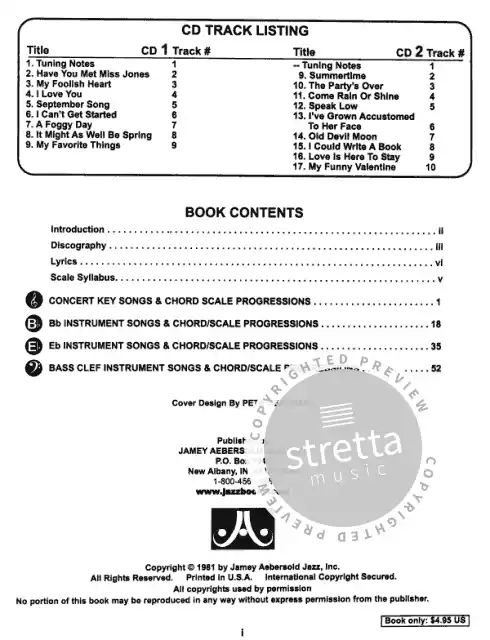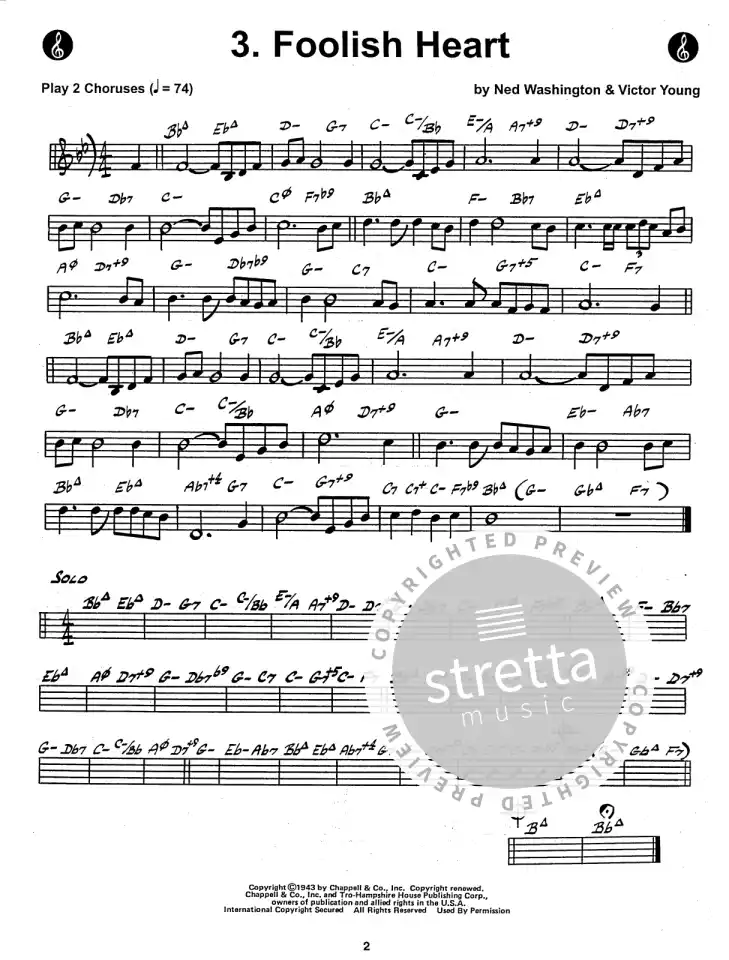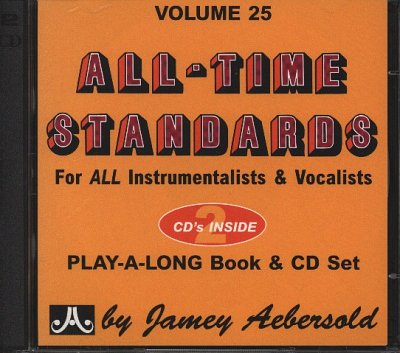In this third set of standards in the Jamey Aebersold Play-A-Long series, we have some of the most popular songs in the jazzman's repertoire, not to mention some of the most musically interesting. Most of these have been heavily recorded; at the time of this writing, over fifty jazz versions of Summertime were available, not to mention all the out-of-print versions. All of the songs have been written by the most successful songwriters America has produced including the Gershwins, Cole Porter, Rodgers & Hart, Rodgers & Hammerstein, Kurt Weill, et al - the men who made the American musical great. Jazz, of course, would be a much poorer music without these writers.
In the ballads in this set, strong melodies are most prominent. My Foolish Heart and The Party's Over each in their own way have a soaring quality that makes them almost sing by themselves. The Chet Baker - Gerry Mulligan version of My Funny Valentine brought it into the jazz fold; / Can't Get Started has been played by practically every jazz trumpeter of note since Bunny Berigan played his definitive version in the thirties, though Dizzy Gillespie's version with the sequence of II-V patterns in the third and fourth bars has had its impact on the players after him. Sarah Vaughan was among the first to record It Might As Well Be Spring; its arpeggiated motif in the third and fourth bars seems especially well-suited to her voice. Of more recent vintage is I've Grown Accustomed To Her Face (retitled by more than on wag as "I've Thrown A Custard In Her Face") has found its way into many a group's repertoire.
Several of the uptempo tunes deserve special mention. September Song, normally done as a dramatic ballad, gets a medium tempo treatment here. Have You Met Miss Jones is rather routine until the bridge, which rapidly modulates through three keys in a way that jazz educator David Baker cites as an ancestor of Coltrane's "Giant Steps" changes. Come Rain Or Shine has been challenging jazzmen with its unusual modulations for years. Old Devil Moon and Speak Low have shorter bridges than one might expect, but those bridges are most interesting with their excursions into remote keys.This album provides rich practice material for all aspects of jazz playing. Interesting chords for improvisation abound, of course, but you should give the ballads special attention to help develop a good sound.
Steve Gilmore and Bill Goodwin on Bass and Drums have been playing together for a number of years with the Phil Woods group. Hal Galper, who recently joined, has been with Cannonball Adderley and Chet Baker among others in addition to having recorded several albums under his own name.
Phil Bailey-1981
